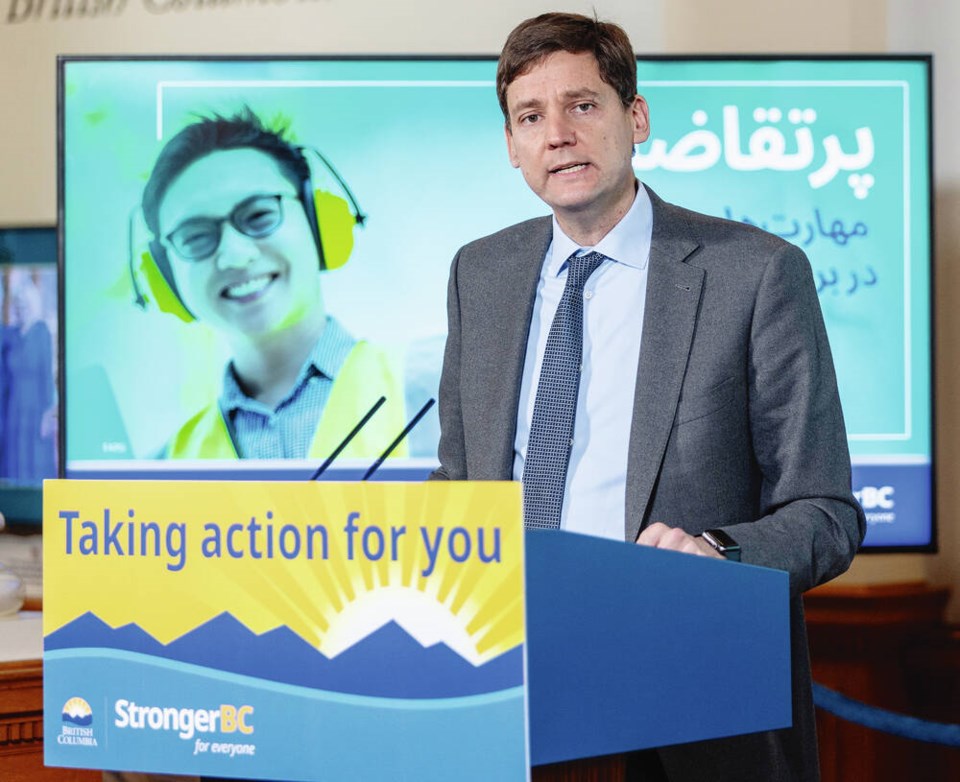The institutionalized stupidity by which foreign credentials are handled across Canada conjures images of regulatory bodies that have been guarding occupational credentials against outsiders for decades and are determined to carry on.
But when the –°¿∂ ”∆µ government took a deeper look at the picture, there wasn’t much of anyone willing to defend the current situation.
Andrew Mercier is a minister of state for workforce development and he was designated point person last spring to delve into why thousands of professionals trained outside of Canada can’t get jobs in their field when they move here.
After canvassing virtually every group involved in or affected by the system, he said “not a single person” defended the current system.
Apparently, even the blockaders don’t like the blockades.
It looks like it’s the way it is simply because that’s the way it’s always been.
So, as a skills shortage worsens every year, thousands of qualified workers are sidelined by bureaucratic inertia and bogus requirements that were imposed in a different age.
The absurdity has been building for years.
“We must make it easier and faster for professionals and skilled workers to find employment in their chosen careers.” That was from a –°¿∂ ”∆µ cabinet minister’s news release 16 years ago announcing a similar campaign.
The NDP government attempt to fix the problem started Monday, with the introduction of an International Credentials Recognition Act.
It will create yet another bureaucracy, but this one is designed to ride herd on the authorities in charge of credentials, to ensure their assessments are fair and efficient. The new superintendent will have powers to force action if the bodies overseeing 29 professions don’t measure up.
The bill explicitly eliminates a “Catch-22” where new arrivals to Canada trying to carry on careers in their field are barred because they need Canadian work experience.
Redundant requirements for frequent language testing will be curbed and there will be deadlines on processing times for applications.
Mercier said he talked to a tradesperson trained elsewhere who spent up to two years refreshing a website to see if their application had been accepted.
Not approved — just accepted as being in order.
“That is ludicrous.”
Premier David Eby said –°¿∂ ”∆µ has many unfair processes that force people to go through “incredibly complex, contradictory, hard-to-understand, expensive repetitive processes that are frustrating and ultimately cause people to give up. …
“We cannot leave people with experience and talents on the sidelines. We need them to get to work.”
Eby said a similar push in health care has brought 450 internationally trained nurses to –°¿∂ ”∆µ, along with 500 doctors.
The bill is aimed at making a similar difference for social workers, early childhood educators, veterinarians, applied science technicians, engineers, lawyers, paramedics and others.
Shelly D’Mello, CEO of the Inter-Cultural Association of Greater Victoria, was on hand to support the bill. She said there is a fundamental mismatch between national immigration policies and the value the labour market places on internationally gained skills.
Internationally trained professionals trying to continue their careers in –°¿∂ ”∆µ find that “despite their many, many years of international experience and education in their field, their ability to practise their profession is severely limited, or not allowed at all.”
The hurdles have been in place for decades. D’Mello’s father was a mechanic who came to Canada in the 1970s and was barred for years from working at his trade.
Apart from all the obvious downsides, she also cited the frustration and low self-esteem that stems from the loss of professional identity.
After 15 years working in the field, she said the hurdles to recognizing foreign credentials are embedded in all sorts of processes. “It’s very layered and ridiculously complex.”
D’Mello said transparency will be much improved by the new law.
The opaque, time-consuming approval processes leave many frustrated.
She quoted one association staff member: “I see so many immigrants who want to move back to their home country.”
Just So You Know: In 2010 there was a $4-million federal-provincial project to establish “fair and timely” recognition of foreign credentials. There’s not much in the files to suggest it made any difference, given that the government today is making the same points all over again.




